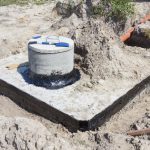When a witness to an incident that has resulted in a lawsuit is neither the plaintiff nor the defendant it often becomes necessary to compel them to testify or provide certain documents. Issuing a subpoena is straight forward, as long as the witness or the documents are in the same state where the action is being litigated. When the witness or documents are located out of state a foreign deposition subpoena may not be that straight forward.
Uniform Interstate Depositions and Discovery Act:
In October 2011 the uniform interstate depositions and discovery act in Nevada came into effect, the act has since been signed by the majority of states. The act makes serving a subpoena on an out of state entity considerably easier.
Prior to the passage of this important act out of state litigants had to go through a very complex, time consuming procedure when seeking a subpoena. Things have changed considerably with the introduction of the act.
Now, an out of state litigant that is seeking to subpoena a person or documents located in Nevada only has to submit the foreign deposition subpoena to the clerk of court in the county where the individual or documents reside. The Nevada clerk of court simply issues a Nevada subpoena to a local attorney who in turn serves it to the witness.
The fundamental rules of discovery are still in effect, discovery must take place in the Nevada County where the witness resides or the documents are located. Streamlining the process has not removed the necessity of having local council. Local council may not be needed to obtain a foreign deposition subpoena but they are required to provide the venue and conduct the actual deposition. Any out of state lawyer is well advised to utilize the services of Nevada council.







